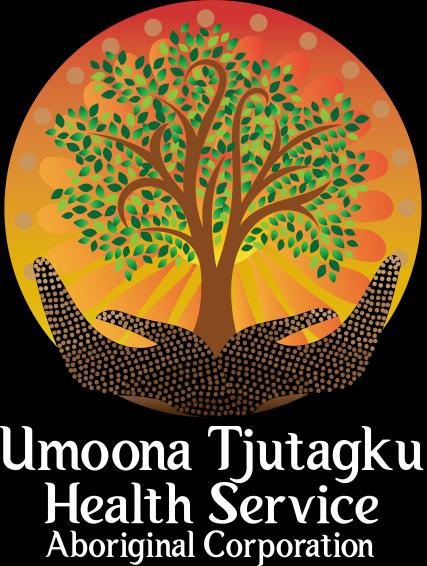

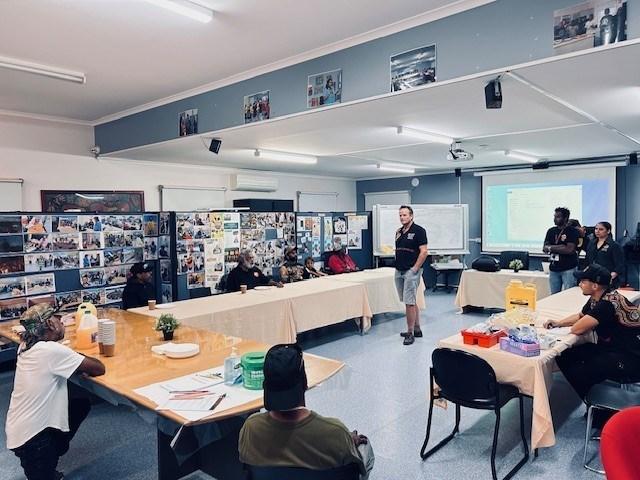



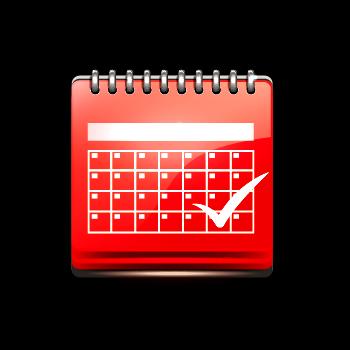
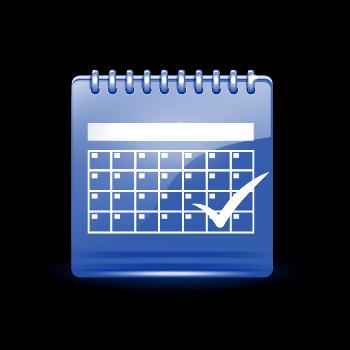

















Over the last few months, the nurses at Umoona Health have been busy with education for their yearly CPD hours which are required as part of their continuing registration.
Some of the courses involved, include:
• Ear training from TAFE NSW
• Skin Smart Cancer Screening from Flinders University SA
• Cervical Screening Test training for the Women’s’ Health Day in May.
• Sleep Study training from Respiratory Nurse Christelle.
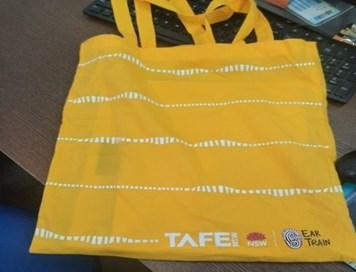


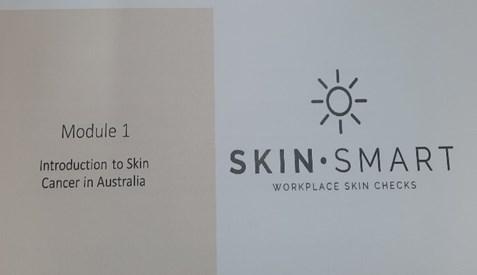




On the 12th of May, it was International Nurses Day. We THANK all of our nurses at the Umoona and around the world for their knowledge, hard work and dedication towards improving health outcomes and enhancing people’s quality of life.





PHONE: 08 8672 5580
EMAIL: eneal@uths.com.au

We are delighted to introduce Evan Neal, a dedicated Mental Health Nurse at Umoona Tjutagku Health Service, who brings a wealth of experience and a deep commitment to the well-being of our community. Evan is excited to announce the launch of a new initiative: the "STRONG MINDS, STRONG COMMUNITY" program. This Community Mental Health incentive aims to provide comprehensive mental health support and resources to individuals and families within our community.
Evan Neal has devoted his career to supporting and enhancing the mental health of individuals from all walks of life. He has been a Qualified Registered nurse since 2019 and has worked in Western Australia, Queensland, the Northern Territory, and South Australia. He has had the pleasure and honour of working in several different communities, including Ngaanyatjarra and Anmatyerr/ Walpirri. His empathetic approach and expertise in mental health nursing make him an invaluable asset to Umoona Tjutagku Health Service.

The "STRONG MINDS, STRONG COMMUNITY" program is designed to address our community's mental health needs through various services and activities. This initiative will offer:
1. Counseling and Therapy Sessions: Providing one-on-one and group therapy sessions to help individuals cope with mental health challenges.
2. Workshops and Seminars: Educational workshops on mental health awareness, stress management, and coping strategies.
3. Support Groups: Facilitating support groups for individuals dealing with similar mental health issues to share experiences and offer mutual support.
Outreach and Education: Conduct outreach programs to raise awareness about mental health and reduce stigma.
Evan and his team are committed to creating a safe and inclusive space where community members can access the help they need without fear of judgment.
In addition to spearheading the "STRONG MINDS, STRONG COMMUNITY" program, Evan Neal's portfolio includes a crucial role in monitoring and following up with clients who have Rheumatic Heart Disease (RHD) and are at risk of Acute Rheumatic Fever (ARF). RHD is a serious condition that can cause significant damage to the heart if left untreated. By closely monitoring these clients and providing timely interventions, Evan aims to reduce the risk of complications and improve their overall quality of life.
Evan's dual focus on mental and physical well-being underscores his holistic approach to healthcare. He believes addressing mental and physical health is essential for fostering a thriving community.
Join Us
We invite you to support Evan Neal and the "STRONG MINDS, STRONG COMMUNITY" program. Together, we can create a healthier, happier community where everyone has the opportunity to thrive. Stay tuned for more updates and information on how you can get involved in this transformative initiative.
For more information about the program or to contact Evan Neal, please get in touch with Umoona Tjutagku Health Service. Your support and participation are crucial in making this program a success. Let's work together to build a strong mind and a strong community!

The misuse of alcohol and drugs has far-reaching effects on families and communities across the globe, and Aboriginal families and communities in Australia face unique and complex challenges due to historical, cultural, and socio-economic factors. Understanding the impact of substance use on these communities, recognizing the available support resources, and focusing on culturally sensitive healing and rebuilding practices are crucial steps towards addressing these challenges.


Substance use can profoundly disrupt the dynamics within Aboriginal families, contributing to:
• Intergenerational Trauma: The legacy of colonization, forced displacement, and the Stolen Generations has left deep scars. Substance use can exacerbate these historical wounds, perpetuating cycles of trauma and addiction across generations.
• Cultural Disconnection: Substance use often leads to a loss of connection with cultural practices, traditions, and languages. This disconnection can be particularly damaging, as cultural identity is a vital source of strength and resilience for Aboriginal families.
• Health Disparities: Aboriginal families often face significant health disparities, including higher rates of chronic diseases and mental health issues. Substance use can compound these challenges, further straining family resources and well-being.
Social and Economic Strain: The economic impact of substance use, including unemployment and financial instability, can be particularly acute in Aboriginal communities where economic opportunities may already be limited. This leads to increased stress and tension within families.
The broader Aboriginal community also feels the impact of substance use through:
• Community Cohesion: Substance use can weaken the fabric of the community by fostering environments of mistrust and conflict. It can lead to increased crime rates, domestic violence, and other social issues that undermine community solidarity.

• Cultural Erosion: When individuals are disconnected from their cultural roots due to substance use, the entire community suffers. Cultural practices, ceremonies, and traditions may be neglected, threatening the transmission of cultural knowledge to future generations.
• Public Health: High rates of substance use can overwhelm community health resources, leading to inadequate care for other pressing health needs. The community's overall health and well-being are compromised as a result.
Economic Impact: Substance use can drain community resources, diverting funds that could otherwise be used for education, infrastructure, and other community development initiatives.
Oodnadatta has very small population and very limited access to services. Social workers at UTHS visit Oodnadatta once a month to deliver AOD and NIAS programs and follow up with clients. Social workers engage with Aboriginal community in Oodnadatta to check their wellbeing and identify their requirements. We do client follow ups, case managements and AOD counselling during these visits.
Social workers do yarning circles with the clients that attend the programs and talk about topics including the cultural aspects, their wellbeing, AOD concerns and challenges they face in community. The clients are provided with a healthy and fulfilling lunch during the programs and food hampers are provided for the families.
During the previous Oodnadatta visit, we discussed about coping strategies for drug and alcohol abuse.



In a remarkable collaboration, Umoona Tjutagku Health Service (UTHS) and Khalsa Aid have joined forces to deliver food and foster cultural exchange in the vibrant yet remote community of Coober Pedy. This initiative highlights the power of unity and shared purpose in addressing both physical and cultural nourishment.
Coober Pedy, known for its unique underground homes and rich opal mines, faces significant challenges with food insecurity, particularly among its Indigenous population. UTHS, a dedicated provider of comprehensive health services to the Aboriginal people of the region, has long recognised the need for reliable access to nutritious food. By partnering with Khalsa Aid, an international humanitarian organisation renowned for its disaster relief and community support, UTHS is taking a significant step towards alleviating hunger and promoting well-being.
Khalsa Aid has been instrumental in providing food supplies, drawing from its extensive experience in delivering aid worldwide. Volunteers from both organisations have come together to distribute food parcels, ensuring that families receive the nourishment they need. This collaboration is not just about providing meals; it’s about offering support, hope, and a sense of community to those in need.


Beyond addressing immediate needs, this partnership also celebrates the rich cultural tapestry of Coober Pedy. Khalsa Aid, with its roots in the Sikh tradition of selfless service, brings a unique cultural dancing perspective that resonates deeply with the values of the Aboriginal community. This alignment has paved the way for meaningful cultural exchange programs, where stories, traditions, and practices are shared and honoured.

Recent cultural programs have included traditional bhangra dancing and storytelling, as well as shared meals that incorporate both Indigenous Australian and Asian cuisines. These events have not only fostered mutual respect and understanding but have also strengthened community bonds. Participants have expressed a renewed appreciation for their heritage and a greater sense of connection to their neighbours.
The collaboration between UTHS and Khalsa Aid is a testament to what can be achieved when organisations with shared values come together. It underscores the importance of addressing a community's physical and cultural needs, recognising that true well-being encompasses more than just basic sustenance.
As this partnership continues to grow, there is hope that it will serve as a model for other communities facing similar challenges. The commitment of UTHS and Khalsa Aid to Coober Pedy is not just about providing immediate relief; it’s about building a foundation for a healthier, more cohesive community where every individual is valued and supported.
The future looks promising as UTHS and Khalsa Aid plan to expand their programs, including the introduction of educational workshops on health and cultural awareness. These initiatives aim to empower the community with knowledge and skills that will contribute to long-term resilience and self-sufficiency.
In conclusion, the partnership between Umoona Tjutagku Health Service and Khalsa Aid in Coober Pedy is a shining example of how collaboration and cultural respect can drive positive change. Together, they are not just delivering food; they are delivering hope, unity, and a brighter future for all.











School educational program conducted on 4th and 5th April 2024 at the Coober Pedy area school by Drug and Alcohol Social Workers Team. The theme was “Educating Our School Children on the Risks of E cigarettes and Vapes”.

In today’s rapidly evolving world, it is crucial to stay informed about emerging trends that may impact our children's health and well-being. One such trend that has garnered significant attention is the use of electronic cigarettes (e-cigarettes) and vapes among young people. At Coober Pedy Area School, we recognized the importance of educating our students about the risks associated with e cigarettes and vapes. Our educational program on this topic aimed to equip students with the knowledge they need to make informed decisions regarding their health.



cigarettes and vapes, often marketed as a safer alternative to traditional cigarettes, pose serious health risks, especially for young users. The liquid in these devices typically contains nicotine, which is highly addictive and can harm brain development, affecting attention, learning, and memory in adolescents. Moreover, the aerosol from these products can contain harmful chemicals that may lead to respiratory issues and other health problems.

Through age-appropriate curriculum and open discussions, we aim to:
1.Provide Accurate Information: Our program educates students about what e- cigarettes and vapes are, how they work, and their potential health effects.
2.Promote Critical Thinking: We encourage students to critically evaluate marketing claims and understand the difference between perception and reality when it comes to the safety of these products.
3.Encourage Healthy Choices: By emphasizing the importance of maintaining a smoke- free and vapefree lifestyle, we empower students to prioritize their health and well- being.
4.Support for Parents: We believe that parental involvement is crucial in reinforcing these messages at home. We provide resources and guidance to help parents discuss these topics with their children effectively.

As a community, we are committed to nurturing an environment where our students can thrive academically, socially, and healthily. By working together educators, parents, and students we can empower our youth to make informed decisions and resist pressures to use harmful substances like e-cigarettes and vapes.
Oodnadatta Visit
In This article, I would like to emphasize the importance of culturally responsive practice, advocacy, and collaboration in supporting Aboriginal clients in Oodnadatta, highlighting the role of social workers in promoting well-being and social justice. In the realm of social work, understanding the diverse contexts and challenges faced by communities is fundamental to our practice. One such community deserving attention is Oodnadatta, a place rich in culture but grappling with unique social issues.


• Educational Program
• Counselling sessions
• Yarning Circles
• Ice Workshops


As social workers committed to advancing social justice and supporting marginalized communities, our work in Oodnadatta holds profound significance. The Aboriginal people of this region face unique challenges stemming from socioeconomic disparities, and cultural complexities. Here’s how our support as social workers can make a meaningful difference:

Bush Trips and Camping

Outdoor BBQ sessions
Providing Food Hampers and Cloths

Music program for Men:
Music can improve mood and quality of life
Listening to music improves mood and overall quality of life. In more than two dozen independent research trials, scientists have consistently found that there is a strong link between music and positive emotions. Because of its rhythmic and repetitive aspects, music engages the neocortex of our brain, which calms us and reduces impulsivity. We often utilize music to match or alter our mood. While there are benefits to matching music to our mood, it can potentially keep us stuck in a depressive, angry, or anxious state.
We love to get our male clients together to jam out, every Wednesday we host a Music program from 11.00am to 01.00pm at Drug and Alcohol Services. For those who don’t know how to play any instrument are more than welcome to join and sing along. We also provide snacks and lunch.
Practical outcomes are,
• Engage and support young Aboriginal and Torres Strait Islander men in and through music
• Promote social and emotional wellbeing through musical arts
• Identification of strategies to support the individual’s learning
• Musical tuition
• Encourage and promote cultural practices and understanding
• Self-confidence /self-esteem/resilience
• Social/community inclusion
• Provide a culturally sensitive safe space for young people to gather Breakfast Program:
We recognize that a healthy breakfast has many health benefits. We provide a meal and a yarn every weekday morning at Umoona Tjutagku Health service Drug and alcohol services. Each day we offer a different meal such as Porridge made from Rolled Oats, Eggs and Bacon to Pancakes and Fruit.
We also offer different health services such as ATSI health checks, general health checkups, social and emotional wellbeing supports, Alcohol and Other drugs counseling supports, through our professional team during the breakfast program.

At Umoona we like to keep our community active and healthy. On Mondays after breakfast, we host a gym program at the Umoona Tjutagku Health Service gym, where males at the age of 16 and over can join. We also offer a healthy lunch and drinks to those who attend.
We provide health checks prior to enroll the clients for the gym program to make sure the clients are physically fit to attend to the program.





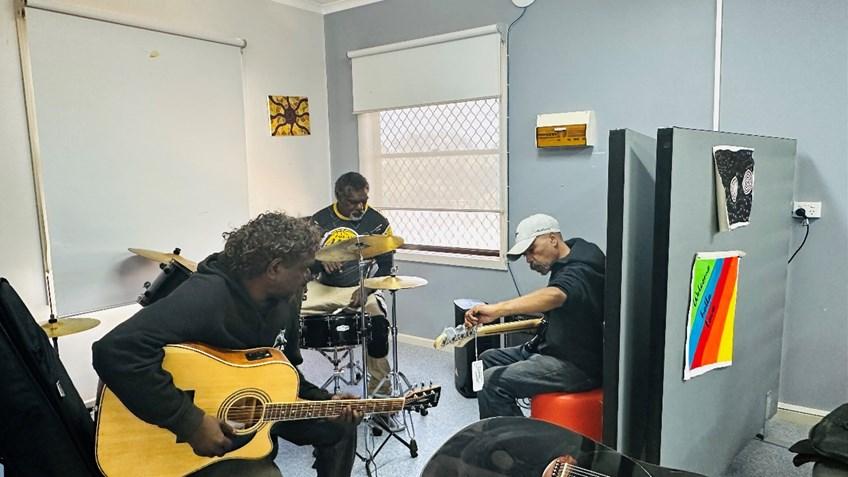
Umoona Tjutagku Health Service Aboriginal Corporation
Inform, educate, perform, model and lead to ensure diversity is
Create & sustain an environment that actively embraces diversity and inclusion by recognising value in the uniqueness
Hold all people associated to UTHSAC accountable for their actions and decisions impacting the achievements of UTHSAC


Utilise the success in diversity to assist UTHSAC becoming a provider and the employer of choice as we lead our
Innovative, responsive and culturally appropriate health services are accessible to Aboriginal people living in the Coober Pedy and surrounding region.
We respect all our Community and all who walk through our doors and expect the same in return from Community

To provide a holistic health care service that achieves positive health outcomes through primary health care intervention as well as safer communities through prevention and education.

